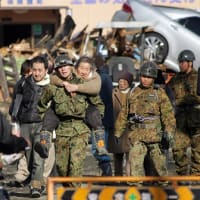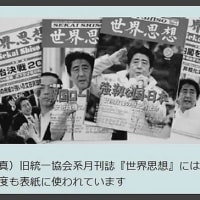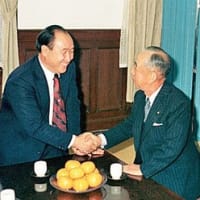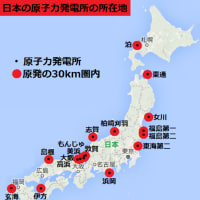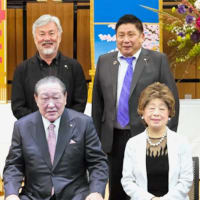Background Press Call Previewing the Official Visit of Prime Minister Kishida Fumio of Japan
岸田文雄内閣総理大臣の日本公式訪問をプレビューする記者会見の背景
National Security Council 国家安全保障会議
Via Teleconference 電話会議経由
(April 9, 2024)
5:40 P.M. EDT
MODERATOR: Thank you. And hi, everyone. Thank you again for joining today’s background call to preview the official visit of Prime Minister Kishida of Japan.
Today’s call is on background. Speakers on today’s call will be attributed as senior administration officials.
司会者:ありがとうございます。そして皆さん、こんにちは。本日は、岸田総理大臣の日本国公式訪問のバックグラウンドコールにご参加いただき、誠にありがとうございます。
本日の電話はバックグラウンドです。本日の電話会議の講演者は、政府高官として起因します。
On today’s call we have [senior administration official], [senior administration official], and [senior administration official]. Again, today’s call is on background, attributed to senior administration officials. And the call will be held under embargo until tomorrow at 5:00 a.m. Eastern Standard Time.
By participating in today’s call, you are agreeing to these ground rules.
I will now turn the call over to [senior administration official].
本日の電話会議には、[政府高官]、[政府高官]、および[政府高官]がいます。繰り返しになりますが、本日の電話会談は、政府高官による背景に関するものです。そして、この電話会議は明日の午前5:00(東部標準時)まで禁輸措置が取られます。
本日の電話会議に参加することで、これらの基本ルールに同意したことになります。
私は今、電話を[政府高官]に引き継ぎます。
SENIOR ADMINISTRATION OFFICIAL: Thank you. And thank you all very much for joining us today. It’s really a pleasure and honor to be with you all.
【政府高官】ありがとうございます。本日はお集まりいただき、誠にありがとうございます。皆さんと一緒にいられることを本当に嬉しく、光栄に思います。
Let me, if I can, first place this visit in a larger context. I think it is undeniable that at the conclusion of this visit we will judge it to be a remarkable and historic summit. And it’s long in the making. We’ve been working on this kind of summit and state visit, frankly, for years. Our two leaders have met over a dozen times in a number of capacities. Prime Minister Kishida graciously hosted President Biden for an official visit as part of the G7 engagements in Hiroshima. And they’ve met on a number of occasions, engaging on the most critical issues before us.
できれば、まず、この訪問をもっと大きな文脈で考えさせてください。今回の訪問の締めくくりとして、注目に値する歴史的なサミットであると判断されることは否定できないと思います。そして、それは長い時間をかけて作られています。率直に言って、私たちはこの種のサミットと公式訪問に何年も取り組んできました。両首脳は、これまで十数回にわたり、さまざまな立場で会談してきました。岸田総理大臣は、G7の広島訪問の一環として、バイデン大統領を公式訪問しました。そして、彼らは何度も会い、私たちの目の前にある最も重要な問題に取り組んできました。
I will say that what we’ve seen specifically is what was largely a regional alliance, and important alliance undeniably, but now a global partnership that I think could be judged as if not our most important global alliance, then among the most important. And I think that reality will be on full display over the course of the next few days.
具体的に見てきたのは、大部分が地域同盟であり、紛れもなく重要な同盟でしたが、今や、最も重要なグローバル同盟ではないにしても、当時は最も重要な同盟の一つであると判断できるグローバルなパートナーシップです。そして、その現実は、今後数日のうちに完全に明らかになると思います。
I do want to just take a moment, if I may, just to commend. These summits are enormously challenging endeavors. Lots of spinning plates and engagements with huge stakes at every turn. And I just want to commend the two people that I’m on the call with today. [Senior administration official] has been the spearhead of this effort, driving forward on what we call deliverables. And I would just underscore that that list is over 70; it’s not uncommon to occasionally have a dozen, maybe 20, at the outside. This is probably the largest set of substantial, significant deliverables that we’ve seen of its kind. And [senior administration official] and her team have helped drive that forward.
少し時間を取って、もしよろしければ、ただ褒めたいと思います。これらのサミットは、非常に挑戦的な試みです。回転するプレートがたくさんあり、あらゆる場面で巨大な賭け金が絡んでいます。そして、今日電話で話した2人を称えたいと思います。(政府高官は)この取り組みの先頭に立ち、いわゆる成果物を推進してきました。そして、そのリストが70を超えていることを強調したいと思います。たまに1ダース、20匹が外に出ることも珍しくありません。これはおそらく、この種のものとしては最大の実質的で重要な成果物です。そして、(政府高官)と彼女のチームは、それを前進させるのに役立っています。
I will also say my friend and colleague [senior administration official] has basically set a new standard for what it means to be an activist, determined, a passionate advocate for a relationship between two countries. And what he’s done in the U.S.-Japan context is no short of remarkable.
また、私の友人であり同僚でもある(政府高官)は、活動家であり、決意を固め、両国間の関係を熱心に提唱することの意味について、基本的に新しい基準を打ち立てたと言いたい。そして、彼が日米関係で成し遂げたことは、目を見張るものがある。
Now, I will say Prime Minister Kishida arrived with his team, members of governments from the Diet and the business community, yesterday. It’s an appropriate time of year as we celebrate the Cherry Blossom Festival starting this weekend.
さて、昨日、岸田総理は、国会の政府関係者、経済界の方々のチームとともに到着されました。今週末から始まる桜まつりを祝うのにふさわしい時期です。
We will have a number of engagements. [Senior administration officials] will run through them. But I think what you will see is a huge number of deliverables in the security arena, but I do want to underscore that the progress and future-oriented stance of our alliance that is on display in Haiti, in the Ukraine, in Southeast Asia, in the Pacific — everywhere that American purpose is being put to the test, Japan is by our side. You will see that clearly animated in our deliverables.
私たちは多くの契約を結ぶことになります。(政府高官は)そこを通り抜けるだろう。しかし、安全保障の分野では膨大な数の成果が見られると思いますが、ハイチ、ウクライナ、東南アジア、太平洋など、アメリカの目的が試されているあらゆる場所で示されている、日米同盟の進歩と未来志向の姿勢を強調したいと思います。 日本は私たちの味方です。成果物には、それがはっきりとアニメーションで示されています。
We are working to build stronger bonds in technology, in joint investment running each way, programming that advances our joint interests in the Pacific and Southeast Asia, and clear initiatives with respect to people-to-people.
我々は、技術、各方面の共同投資、太平洋及び東南アジアにおける両国の共同利益を前進させるプログラム、及び人と人との交流に関する明確なイニシアティブにおいて、より強固な絆の構築に取り組んでいる。
I think, in many respects, this relationship and what you will see is the fundamental validation of President Biden’s Indo-Pacific strategy, which seeks to elevate the role of partners and allies in concert with us as we seek to keep an open, secure, and vital Indo-Pacific.
多くの点で、この関係と皆さんが目にすることになるものは、バイデン大統領のインド太平洋戦略の根本的な正当性を裏付けるものであり、開かれた安全で活力あるインド太平洋の維持を目指す中で、米国と協調してパートナーや同盟国の役割を高めることを目指すものです。
I do just want to underscore just a couple of things as we go forward. The initiatives are both sophisticated and down to earth.
ただ、私たちが前進するにあたり、いくつかのことを強調したいと思います。イニシアチブは洗練されており、現実的です。
I do want to just mention one particular thing. I think the two most important gifts that countries have given the United States over the course of our existence: one would be the Statue of Liberty, and the second might be the gift, 110 years ago from Japan, of the cherry trees around the Tidal Basin.
一つだけ、ある特定のことを述べておきたいと思います。私たちの存在の中で、各国が米国に与えてくれた最も重要な贈り物は、自由の女神像と、110年前に日本から贈られたタイダルベイスン周辺の桜の贈り物だと思います。
This is a tribute to both [senior administration official] and others on the Japanese side. I think they noted a few weeks ago that, sadly, several hundred of those trees would have to be felled in order to do some work around the Tidal Basin. The Japanese immediately understood the significance of that; offered us to help provide saplings when the time is right to replace these felled trees, to signal their continuing friendship and partnership.
これは[政府高官]と日本側の他の人々の両方への賛辞です。数週間前、悲しいことに、タイダル・ベイスン周辺で何らかの作業を行うためには、数百本の木を伐採しなければならないと、彼らは気づいたと思います。日本人はすぐにその重要性を理解しました。伐採された木々を交換する時期が来たら、苗木の提供を手伝い、継続的な友情とパートナーシップを示すことを申し出てくれました。
I think we’ll find that it’s initiatives like this that may not be as significant as apparently as new arrangements on military command structures or joint co-production on the military side, but they’re deeply significant to our peoples. And we are grateful. Prime Minister Kishida will have a planting ceremony tomorrow on the Mall to basically underscore his commitment to this.
このようなイニシアチブは、軍の指揮系統に関する新しい取り決めや、軍事側での共同制作ほど重要ではないかもしれませんが、国民にとって非常に重要なものであることがわかると思います。そして、私たちは感謝しています。岸田首相は明日、モールで植樹式を行い、基本的にこれへのコミットメントを強調する。
I’d like to turn it over now to [senior administration official] to basically give us a blow by blow about how we arrived here, what he thinks are the big moving pieces that are significant, both in the Indo-Pacific and globally, as we take the U.S.-Japan relationship to the next level. Thank you.
ここで、(政府高官に)お伺いし、日米関係を次のレベルに引き上げる上で、インド太平洋地域と世界の両方において重要な大きな変動要因は何だと考えているかについて、基本的に一撃ずつ説明したいと思います。ありがとうございます。
SENIOR ADMINISTRATION OFFICIAL: Thanks, [senior administration official]. I want to emphasize and underscore something [senior administration official] said, because in the last 60 years, you would define this relationship between the United States and Japan, since it got formalized in 1960, as one of alliance protection. I think this state visit kind of ends that era and defines the next period of time, this alliance projection from alliance protection.
SENIOR ADMINISTRATION OFFICIAL: [SENIOR ADMINISTRATION OFFICIAL]さん、ありがとうございます。というのも、1960年に正式化されて以来、過去60年間、日米関係は同盟保護の1つと定義されてきたからです。今回の国賓訪問は、その時代を終わらせ、次の時代、つまり同盟の保護から同盟を投影する時代を定義するものだと思います。
And in the last two years that allowed this transition to occur, the Prime Minister changed five to six major 70-year-old policies that have always been on the books. Japan has gone from a 1 percent cap on defense spending to 2 percent of GDP. And that was before there was even a tank on the Ukrainian border. And it’s going to become the third-largest military spender in the world.
そして、この移行を可能にした過去2年間で、首相は、常に帳簿に載っていた70年の歴史を持つ主要な政策を5つから6つ変更しました。日本は防衛費の上限を1%からGDPの2%に引き上げました。しかも、それはウクライナ国境に戦車が配備される前のことだった。そして、世界第3位の軍事支出国になるだろう。
They’ve acquired Tomahawk counter-strike capability, which will have a real effectiveness to the credibility of our collective deterrence.
彼らはトマホークの反撃能力を獲得しており、これは我々の集団的抑止力の信頼性に真の効果をもたらすだろう。
Third, they’ve lifted the cap on defense technology export.
第三に、防衛技術輸出の上限を撤廃した。
Fourth, with us they have raised the ROK-Japan-U.S. relationship, as experienced in Camp David, to a level of stability that shifted the strategic landscape in the Indo-Pacific as one of (inaudible) main pillars has been that the ROK, Japan, and the United States (inaudible), all three get on the same page.
第四に、日韓両国を育てた。キャンプデービッドで経験したように、インド太平洋の戦略的展望を変化させた安定レベルとの関係は、韓国、日本、米国(聞き取れない)の3つが同じ考えを持っている(聞き取れない)主要な柱の1つである。
Fifth is, the day that Russia invaded Ukraine, they ended their policy with Russia and decided to throw all their weight behind values and ideals of (inaudible) democratic democracies and understand that Russia had to be sanctioned because this cannot be permissible behavior, become a norm. The raw exercise of power was committed and accepted and became the new norm.
第五に、ロシアがウクライナに侵攻した日、彼らはロシアとの政策を終わらせ、(聞き取れない)民主民主主義の価値観と理想に全力を尽くし、ロシアは制裁されなければならないと理解することを決めた。生々しい権力の行使が約束され、受け入れられ、新しい規範となった。
In that same time, I think then what has that committed for the United States? One is: For the first time ever, we’re going to change the force structure that we have in Japan so it actually can make the most of their new joint operations center that’s part of the defense budget and have a real capacity and capability to integrate our forces. Second is: Now with the cap on the defense export being lifted, we’re going to have a military industrial council that will evaluate where we can (inaudible) and co-produce defense weapons. And so, Japan’s industrial capacity and strength that had always been on the sidelines will come to bear on one of the weak points right now that we have, which is we don’t have really the bandwidth on the defense production capacity that we need for our strategic applications.
その同じ時期に、それは米国に何をもたらしたのでしょうか。一つは、史上初めて、日本が国防予算の一部である新しい統合作戦センターを実際に最大限に活用し、我々の軍隊を統合するための真の能力と能力を持つことができるように、日本における戦力構成を変更することです。
第二に、防衛輸出の上限が撤廃された今、軍産評議会が開かれ、防衛兵器をどこで(聞き取れないが)共同生産できるかを評価することになる。ですから、これまで傍観者だった日本の工業力と強さは、現在の弱点の一つ、つまり、戦略的応用に必要な防衛生産能力の余力が本当にないという問題に結びつくことになります。
There will also be pieces as related to the integrated missile defense system with Australia, the United States, and Japan.
また、豪州、米国、日本との統合ミサイル防衛システムに関する部分もあります。
The second column, which is — in the last two years, we’ve signed five separate space agreements with Japan: Artemis, Gateway, Mars, International Space Station framework, and there’ll be a major agreement to the lunar exploration with Japan as a full partner, from expending major resources with their NASA equivalent, which is JAXA.
2つ目のコラムは、過去2年間で、アルテミス計画、ゲートウェイ計画、火星計画、国際宇宙ステーション(ISS)の枠組みという5つの宇宙協定を日本と締結し、日本を完全なパートナーとして月面探査に向け、NASAのJAXAと大きな資源を投入することになりました。
And then building on the people-to-people, two initiatives. There’ll be a joint AI research between Carnegie Mellon and Keio University, their major private university in Tokyo. That will be in the AI area, funded by both a series of Japanese companies and Microsoft. And then AI — a separate but a different part of AI — between the University of Washington in Washington State and Tsukuba University. And that’s going to be with Amazon and NVIDIA at $50 million.
そして、人と人との2つの取り組みを発展させています。カーネギーメロン大学と慶應義塾大学(東京)の大手私立大学との共同AI研究が予定されています。それはAI分野であり、一連の日本企業とマイクロソフトの両方から資金提供を受けることになります。そして、AIとは別の、しかし別の部分であるAIは、ワシントン州のワシントン大学と筑波大学の間にあります。そして、それはAmazonとNVIDIAが5000万ドルで出資することになる。
And then a third kind of people-to-people, which is Norman Mineta scholarship, $12 million, to fund students in their junior year of high school to go live overseas and study — the United States students go to Japan, and Japan high school students come to the United States. The Norm Mineta scholarship.
そして、3つ目の人的交流として、ノーマン・ミネタ奨学金(1,200万ドル)は、高校2年生の生徒が海外で生活し、勉強するための資金として、アメリカの学生が日本に行き、日本の高校生がアメリカに来るというものです。ノームミネタ奨学金。
But to me, each of these, in the end of the day, are — all the particulars add up to a major shift where Japan, which used to be, you know, only worried about the perimeters of their island, projecting not only into the region and the alliance and its value system, but being a full global partner on whatever happens in Europe, the Mideast, and also the Indo-Pacific.
しかし、私にとっては、これらの一つ一つが、結局のところ、すべての詳細が積み重なって、かつては島の周辺だけを心配していた日本が、地域や同盟とその価値体系だけでなく、ヨーロッパで何が起ころうとも完全なグローバルパートナーになるという大きな変化につながります。 中東、そしてインド太平洋。
And so, this state visit comes at a point that the relationship is shifting to a higher and different level, and having the building blocks and the deliverables that underscore each one of those pieces.
ですから、今回の国賓訪問は、両国関係がより高く、異なるレベルへと移行し、それぞれの要素を強調する構成要素と成果物を持つ時期に行われます。
[Senior administration official]?【行政高官】?
SENIOR ADMINISTRATION OFFICIAL: Thanks, [senior administration official].
SENIOR ADMINISTRATION OFFICIAL: [SENIOR ADMINISTRATION OFFICIAL]さん、ありがとうございます。
[Senior administration officials] put out a lot on the table here, so I’ll just a saw a few words to wrap up our topper, and then I look forward to taking your questions.
(政府高官が)いろいろなことをおっしゃったので、最後に一言だけ申し上げて、それから皆さんの質問を楽しみにしています。
There’s certainly a lot more we can dig into in our defense and security deliverables, where there’s some really (inaudible) advances taking place within the U.S.-Japan alliance, some of which are some of the most consequential moves we will have taken in decades.
防衛・安全保障の成果物には、日米同盟内で実際に(聞き取れない)進展が見られ、その中には、ここ数十年で最も重要な動きがあるものもある。
But as [senior administration official] just indicated, what we’re really doing here is culminating three years of fast and furious work that would have been unimaginable just a few years ago and, frankly, unimaginable with a leader other than Fumio Kishida, but that has truly taken this alliance to the next level, modernized it, and now put us on a pathway to even bigger things.
しかし、今(政府高官が)おっしゃったように、私たちがここで実際に行っていることは、ほんの数年前には想像もできなかった、率直に言って、岸田文雄以外のリーダーでは想像もできなかったような、猛烈な3年間の仕事の集大成ですが、それがこの同盟を真に次のレベルに引き上げ、近代化し、今や私たちをさらに大きなものへの道に導いています。
And we’ll be taking our next logical steps tomorrow and also lighting the pathway for U.S.-Japan alliance managers for many years to come.
そして、私たちは明日、次の論理的なステップを踏み出し、今後何年にもわたって日米同盟のマネージャーの道筋を照らしていきます。
But a broader point that I think I’ll leave it with and conclude these opening remarks is the fact that the President’s visit with Prime Minister Kishida tomorrow, as well as the trilat that he’ll be holding with Prime Minister Kishida and President Marcos of the Philippines later this week, is both a really important and consequential set of meetings in and of themselves, but it’s also a proving ground for the President’s theory of case when it comes to his entire Indo-Pacific strategy.
しかし、この冒頭の挨拶を締めくくるには、明日の大統領の岸田総理との会談、そして今週後半に予定されている岸田総理大臣やマルコス・フィリピン大統領との会談は、それ自体が極めて重要で重要な会談であるということです。 しかし、それはまた、インド太平洋戦略全体に関する大統領の主張の証明の場でもある。
When the President took office over three years ago, his theory of the case was that if the United States reinvested in its alliances and partnerships in the Indo-Pacific and built collective capacity as we put it in our Indo-Pacific strategy, along with others, that those allies and partners would step up alongside in ways that made us much better able, much better equipped to accomplish our objectives in this critical region.
3年以上前に大統領に就任した際、米国がインド太平洋地域における同盟やパートナーシップに再投資し、インド太平洋戦略で掲げたように集団的能力を他の国々とともに構築すれば、これらの同盟国やパートナーは、米国がはるかに優れた能力を発揮できるような形で、米国とともに歩むことができるだろうというのが彼の理論でした。 この重要な地域での目標を達成するための準備がはるかに整いました。
And nowhere is this theory better proven out than in our alliance with Japan, where Prime Minister Kishida has stepped up and stepped out into the world more than anyone really ever could have imagined.
そして、この理論が証明されているのは、岸田首相が誰も想像もしなかったほど世界に踏み出した日本との同盟関係です。
So that’s what you’ll see on display tomorrow. We have a lot to celebrate, and we’re excited for the pathway ahead. I’ll stop there.
明日は、それが展示されるものです。祝うべきことがたくさんあり、これからの道のりにワクワクしています。私はそこでやめます。
MODERATOR: Great. Thank you all for opening remarks. Moderator, I think we are ready to move into the Q&A portion.
司会者:いいですね。開会の挨拶をありがとうございました。司会者、質疑応答の部分に移りたいと思います。
OPERATOR: Moving to our first caller. Michael Shear, your line is unmuted. Please go ahead.
オペレーター: 最初の発信者に移ります。マイケル・シアー、あなたのラインはミュートされていません。どうぞどうぞ。
Q Hey all. Thanks for doing the call. I appreciate it. Two quick questions.
Q:皆さん、こんにちは。お電話いただきありがとうございます。どうもありがとうございます。2つの簡単な質問。
One, can you describe what, if any, message President Trump [sic] is going to deliver to the Prime Minister about U.S. Steel and his concerns about a potential acquisition?
1つめは、トランプ大統領がUSスチールと買収の可能性に関する懸念について、首相にどのようなメッセージを伝えようとしているのか、もしあれば説明していただけますか?
And two, to what extent are you all — do you all feel an urgency to cement, I think as [senior administration official] called it, this next level of relationship, given the coming election and the fears in — you know, sort of abroad in many places, but maybe in Japan too, about the possibility that President Trump could come back into office and all that could mean to the region and to the alliance?
そして2つ目ですが、皆さんはどの程度、(政権高官が)呼んだように、来るべき選挙と、トランプ大統領が大統領に返り咲く可能性や、それが地域と同盟にとって意味するすべてのことについて、多くの海外で、そしておそらく日本でも懸念されていることを考えると、この次のレベルの関係を強固にする緊急性を感じていますか?
SENIOR ADMINISTRATION OFFICIAL: So I’ll start maybe, and then let — I think you inadvertently said what would President Trump have to say. I think you probably meant —
政権高官:それで、多分始めて、それから、トランプ大統領が言わなければならないことをうっかり言ってしまったと思います。多分、おっしゃる通りだと思いますが――
Q Oh, sorry. President Biden. Sorry.
Q あ、すみません。バイデン大統領。すみません。
SENIOR ADMINISTRATION OFFICIAL: Probably inadvertently reveals your state of mind as well, though.
So, look, on the second part of that question, I can say this: Look, I think we all recognize that there is anxiety in capitals, uncertainty about what the nature of the future of U.S. policy will look like, whether we will remain as engaged in internationalist pursuits and the kinds of bipartisan foreign policy efforts which have animated the last period, both after the Second World War and after the Cold War. There are questions and concerns there.
ですから、この質問の2番目の部分について、私はこう言うことができます:いいですか、私たちは皆、首都に不安があり、米国の政策の将来の本質がどのようなものになるのかについての不確実性があることを認識していると思います。 第2次世界大戦後も冷戦後も。そこには疑問や懸念があります。
I think what we believe, and the people on this call have been deeply engaged with this, is that by strengthening and validating the concept of load-bearing bilateral and multilateral relationships — countries that are prepared to lend a hand and work with us and, in some cases, leading efforts — we think that validates that philosophy and creates a kind of momentum of its own.
私たちが信じていること、そしてこの呼びかけに参加している人々が深く関わってきたことは、二国間および多国間の関係、つまり手を貸し、協力し、場合によっては努力を主導する準備ができている国々という概念を強化し、検証することで、その哲学を検証し、それ自体が一種の勢いを生み出すと考えているということです。
And so, I think it would be fair to say that, you know, there are a number of responses internationally. I think some countries have sought to lie low. Others recognize that the best approach is to double down and engage deeply with the United States. And we’re seeking to do that.
ですから、国際的には多くの反応があると言っても過言ではないと思います。一部の国は、嘘をつこうとしていると思います。また、最善のアプローチは、米国と深く関与することであると認識している人もいます。そして、私たちはそれを求めています。
And I think the Japan experience and what we’ve seen with Prime Minister Kishida is a case study in recognizing that their best possible way forward is a deep, substantial, continuing engagement with the United States.
そして、日本の経験と岸田首相との会談は、米国との深く、実質的な、継続的な関与が最善の方法であると認識するケーススタディだと思います。
[Senior administration official]?
【行政高官】?
ADMINISTRATION OFFICIAL: I’ll pass to [senior administration official] actually on this one.
行政官:この件については、実際に[行政高官]にお伝えします。
SENIOR ADMINISTRATION OFFICIAL: Mike, let me just deal with the second question, and then I’ll go to the first.
政府高官:マイク、2番目の質問にとどめてから、最初の質問に移ります。
On the second question: Look, there is a tactic and a strategic objective by China, which is to isolate the Philippines, what they’re doing on the coast guard, or to isolate Japan, what they’re doing with the embargo on fish.
第2の質問についてですが、中国には戦術と戦略目標があり、それはフィリピンを孤立させることであり、それはフィリピンが沿岸警備隊で行っていること、あるいは日本を孤立させることであり、彼らが魚の禁輸で行っていることです。
The idea of switching to a multilateral lattice-like strategic architecture is then to flip the script and isolate China. When you have, like we did this week, the United States, Japan, Australia, and the Philippines doing an exercise together, when you have the trilat on Thursday, the country that’s isolated is China, not the Philippines.
多国間格子状の戦略的構造に切り替えるというアイデアは、台本をひっくり返して中国を孤立させることである。今週のように、米国、日本、オーストラリア、フィリピンが一緒に演習をしているのに、木曜日にトリラートがあるとき、孤立している国はフィリピンではなく中国です。
And in every practice that we’re doing — the strategic, diplomatic, military exercises of doing it multinational is that the end result is that China’s attempt to intimidate one country, make an example of that country and intimidate the others in the neighborhood, flips the script and China is the isolated and the outlier in the neighborhood (inaudible). So that’s number one.
そして、我々が行っているあらゆる実践において、多国間演習を行う戦略的、外交的、軍事的演習は、最終結果として、中国が一国を威嚇し、その国を例示し、近隣諸国を威嚇しようとする試みが台本をひっくり返し、中国は近隣諸国で孤立し、外れ値となる(聞き取れない)ことになる。これが1番です。
And number two is: You know, I’ve seen it upfront with now three presidents. Not only the trilateral on Thursday, but the one at Camp David with the ROK — if they have trust in America and then personal trust in President Biden, or (inaudible) president, other leaders are going to go past just clearing the bar. They’re going to stretch themselves, spend political capital because it means something and comes back to value.
そして2つ目は、私は今3人の大統領を前に見てきました。木曜日の三国間会談だけでなく、キャンプ・デービッドでの韓国との会談も、もし彼らがアメリカを信頼し、バイデン大統領や(聞き取れない)大統領を個人的に信頼しているなら、他の指導者たちは、ただハードルをクリアするだけを通り越して、通り過ぎるだろう。彼らは自分自身を伸ばし、政治的資本を費やすでしょう、なぜならそれは何かを意味し、価値に戻ってくるからです。
So the real answer is: Some of this is standalone and will stand the test of time. Building on it requires somebody that’s invested in it. So there’s also risk that’s straight up, because people are putting resources — the Australians, South Korea — ROK, Japan, the Philippines — in the United States because they trust us, they want to work with us, and they know that we are the right kind of counterweight to an untethered China.
したがって、本当の答えは、このうちのいくつかはスタンドアロンであり、時の試練に耐えられるということです。その上に構築するには、それに投資する人が必要です。オーストラリア、韓国、韓国、日本、フィリピンなど、人々が米国に資源を投入しているのは、米国を信頼し、協力したいと思っており、米国が束縛されていない中国に対抗するのにふさわしいと知っているからだ。
Then to the first question on Nippon Steel: Look, the relationship between the United States and Japan is far bigger and more significant than a single commercial deal.
では、日本製鉄に関する最初の質問ですが、米国と日本の関係は、単一の商取引よりもはるかに大きく、重要です。
Six weeks ago, the United States gave Mitsui, a Japanese company, a $20 billion deal to build a crane factory here in the United States and replace all our port cranes throughout the United States. Nothing says trusted ally like a $20 billion contract with a Japanese company.
6週間前、米国は日本企業である三井物産に200億ドルの契約を結び、ここ米国にクレーン工場を建設し、米国全土の港湾クレーンをすべて交換しました。日本企業との200億ドルの契約ほど信頼できる同盟国はありません。
And in 2021, outside companies or foreign companies were looking at Toshiba. Japan said, on national security interests, they didn’t want that to go forward.
そして2021年、外部企業や外資系企業が東芝に目を向けるようになりました。日本は、国家安全保障上の利益のために、そのようなことは望まないと述べた。
So I guess would just basically understand — everybody understands where we are. Everybody understands the significance of not only this visit but also the relationship. And it’s larger than a single effort. And I say that as somebody who started his political career back in — national political career in 1992 working for Bill Clinton.
ですから、基本的には、誰もが私たちがどこにいるのかを理解していると思います。この訪問だけでなく、関係の重要性も誰もが理解しています。そして、それは単一の努力よりも大きいのです。そして、私は、1992年にビル・クリントンの下で働き、政治家としてのキャリアをスタートさせた者として、そう言っています。
We’re in a different place fundamentally. And I just think that this single commercial transaction does not define not only the visit, but the relationship and its potential and what is actually delivering in the region or across the globe. And both leaders (inaudible).
私たちは根本的に異なる場所にいます。そして、この1つの商取引は、訪問だけでなく、その関係とその可能性、そして地域や世界中に実際に何をもたらすかを定義するものではないと思います。そして、両方のリーダー(聞き取れない)。
OPERATOR: Moving to the next caller in the queue.
OPERATOR: キュー内の次の呼び出し元に移動します。
SENIOR ADMINISTRATION OFFICIAL: And for the record, I was talking about President Biden, not President Trump.
政府高官:念のために言っておくと、私はトランプ大統領ではなく、バイデン大統領のことを話していました。
OPERATOR: Moving to the next caller. Demetri Sevastopulo from Financial Times. Your line is unmuted. Please go ahead.
オペレーター: 次の発信者に移動します。フィナンシャル・タイムズのデメトリ・セバストプーロ。回線のミュートが解除されます。どうぞどうぞ。
Q Thanks. I have two questions. The first is for [senior administration official]. The other day at CNAS, you said Japan had made some progress implementing information security systems improvements. How far do you think they are from getting to a place where the U.S. and the Five Eyes are kind of comfortable with their level of security?
Q:ありがとうございます。2つ質問があります。1つ目は[行政高官]です。先日、CNASで、日本は情報セキュリティ体制の改善に一定の進展があったとおっしゃいました。米国とファイブアイズが安全レベルに満足しているところまで、彼らはどれくらい離れていると思いますか?
And then, for any of you, what sort of the things that you’re doing right now with Japan, including restructuring the U.S. command in Japan, are complete? Do you think we’re at a point where Japan could actually fight alongside the U.S. if there was a contingency over Taiwan? Or is that still a long way away?
そして、皆さんの皆さんにとって、在日米軍司令部の再編を含め、今、日本に対して行っていることは、どのようなことなのでしょうか。台湾をめぐる有事が起きた場合、日本が実際に米国と一緒に戦える段階に来ていると思いますか?それとも、まだ先の話なのでしょうか?
SENIOR ADMINISTRATION OFFICIAL: I’ll start and then [senior administration officials] jump in.
政府高官:私が始めて、それから[政府高官]が飛び込んできます。











